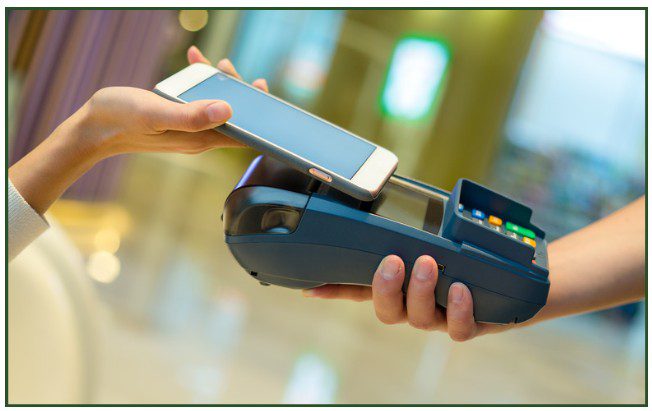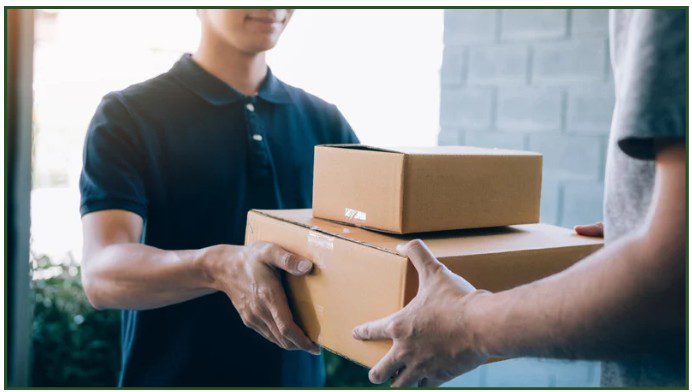Introduction
The Ecommerce industry has experienced remarkable growth over the years. In 2023 the ecommerce market in the UK generated $360 million in revenue, this is expected to reach $928 million by 2030.
Online shopping accelerated during the COVID-19 pandemic, where convenience experience was a priority for consumers. While factors like the advancements in Augmented Reality (AR) and the changes in consumer behaviours are just a couple of examples of how ecommerce has revolutionised in recent times.
In this blog we examine some of the key trends which we expect will have an impact on ecommerce this year.

Advancements in Technology
Through chatbots and virtual assistants, AI creates personalised shopping experiences, offering instant customer support and cost saving through automation which ensures complex tasks can be seen to by humans.
Artificial Intelligence (AI) support is the future for business, in 2024 the chatbot market reached $7.8bn and will continue to rise at an estimated 23.3% annual growth rate between 2025 and 2030.
On ecommerce platforms, AI can analyse user data like browser and purchase history and provide consumers with personalised recommendations and will push products tailored to their individual desire.
AI tools will help us understand emotions and adapt to customer needs. Features like predictive inventory management helps consumers find what they want, creating an intuitive, efficient shopping experience.

Virtual and Augmented Reality is transforming the ecommerce industry by providing immersive, real-time shopping experiences and virtual try ons, perfect for quick and easy browsing, which suits the modern expectations.
AR consumers can visualise and test products from their homes through their devices, ensuring confidence with each decision. Virtual Reality (VR) ecommerce goes a step further by creating a virtual world in which consumers can interact and browse with products as if they were physically present.
In AR and VR markets, the number of users in the UK is expected to reach around 58 million by 2029.
These technologies eliminate uncertainty, reduce returns and make shopping more engaging and interactive and will no doubt become the cornerstone of the modern ecommerce experience.
Alternate payment methods including digital wallet purchases like Apple pay, cryptocurrencies and buy-now-pay-later will be a part of the shift from traditional to digital payments. This is becoming more popular in our tech reliant society.
Cash payments have fallen significantly in the last decade, from over half of all payments in 2009, to only 12% in 2023. Businesses should adapt to this accept more digital varieties of payments if they are to keep up to date with these trends.

Sustainability
Online shopping is now more popular than in-store shopping, and buying from organisations who follow eco-friendly practices, sustainable sourcing and environmental preservation is also on the rise.
Addressing environmental challenges and meeting expectations for sustainable practice pushes businesses to adopt eco-friendly packaging, carbon neutral shipping and greener delivery solutions.
Businesses are expected to use recyclable material and be as efficiency as possible in their deliveries as to minimise carbon footprint. The growing demand for corporate social responsibility is supported by a survey conducted by BusinessDasher which found that 92% of customers are more likely to trust businesses that are environmentally or socially conscious.
It is likely there will be a greater emphasis on sustainable business in ecommerce, driven by consumer demands for greener products, ethical sourcing and transparent, efficient deliveries.

Consumer Behaviour
The rise of mobile shopping is driven by Gen Z and Millennial demographics, in fact, Gen Zers are twice as likely to make a purchase on their smartphone compared to Millennials and more than half of Gen Z bought something on social media platforms in 2024.
Businesses have shifted their priorities and reshaped their operations to fit these demographics. The consistent rise in social commerce on platforms like TikTok and Instagram open new opportunities for businesses, allowing them to widen their reach.
For mobile users, cookies and other means of activity tracking allow businesses to personalise product recommendations and offer a tailored shopping experience, improving satisfaction and conversion rates.
Delivery efficiency and convenience are what makes the best customer experience. Major companies like Amazon offer same day, next day and priority delivery, at little to no additional cost. This raises the bar for their competitors, and as Amazon offer specialty services, so do the competitors, thus improving the customer experiences across the whole market, as such high standards have been set.
Businesses will therefore be pressured to optimise their logistics and come up with more efficient processes to meet the expectations of consumers.

While fast and free deliveries satisfy customers, it presents challenges such as increased operational costs, higher chance of returned or damaged goods and prompts companies to explore more sustainable delivery options without compromising speed or affordability.
Challenges in Ecommerce
Data privacy and cybersecurity focus’ on the protection of customer data and being able to prevent and adapt to evolving threats like malware and phishing. Businesses respond to these challenges by implementing stricter control, managing consent and ensuring compliance with regulations like GDPR.
Challenges originate from data privacy concerns, supply chain disruptions, fraud and scam, and the demand for more efficient deliveries. These challenges ensure that the ecommerce sector continues to follow best practices, innovate and stay ahead of these drawbacks while adapting to new trends.
Many companies leverage AI for advanced threat detection for incidents like fraud. AI analyses data, identifies patterns and comes up with responses to improve threat detection and anticipate attacks before they occur. These are crucial measures as consumers are increasingly wary of online safety and understand the importance of protecting personal information.
Logistical challenges remain a concern for businesses and can be caused by geopolitical tensions, natural disasters and labour shortages. As a result delayed deliveries, increased costs and inventory shortages can occur which impacts customer satisfaction, revenue and brand reputation.

Today’s ecommerce climate demands efficient last mile delivery, which puts a strain on logistical processes. Consequently, businesses are adopting technologies like blockchain for transparent supply chain tracking, AI for predictive analytics and automation to streamline operations.
These innovations should be embraced as they are essential towards building resilience and maintaining competitiveness in ecommerce.
Emerging players in ecommerce continuously disrupt the market while established brands strive to innovate and pull away from the competition. As a results customer retention strategies like personalising shopping experiences will rise.
AI helps businesses tailor product recommendations and dynamic pricing is becoming indispensable in creating loyal customers. Businesses are choosing to follow approaches that create seamless interactions across both digital and physical platforms to ensure convenience for customers.
Finally, subscription models, loyalty schemes and post-purchase communication methods like surveys will continue to be common practice for business as they help to enhance relationships and improve the rate of repeat customers.
Key Points
- Retaining customers demands a blend of cutting-edge technology, exceptional service and authentic connections.
- Ecommerce is shaped by advancements in AI, AR, and VR to create immersive shopping experiences.
- Sustainability is a major focus, with businesses adopting eco-friendly practices like recyclable packaging and carbon-neutral shipping.
- Focus on robust data security measures and monitor performance metrics regularly to refine strategies for sustainable growth.
- Optimise mobile usability to cater to the rise of social commerce and target the more digital Gen Z and Millennial consumers.
- The demand for fast, free delivery drives logistical innovations
- Data privacy, cybersecurity, and supply chain disruptions persist.
How Hopewiser Can Help Ecommerce Platforms

At Hopewiser, we can help ecommerce businesses improve operational efficiency.
By utilising our Address Validation and Data Cleansing tools, you can ensure accurate address data to help you minimise delivery errors.
You can simplify the checkout process on your ecommerce platform with Hopewiser’s Address AutoComplete tool, giving customers a streamlined process when it comes to completing payment and checkout pages.
Contact Us to find out more about what we can do!
Visit our Ecommerce industry page for more information!
, updated 9th April 2025.






